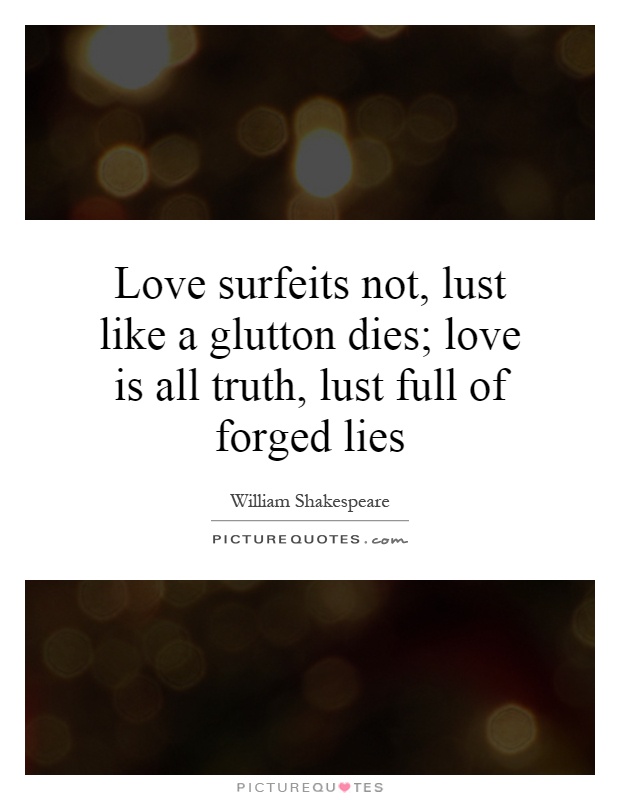Love surfeits not, lust like a glutton dies; love is all truth, lust full of forged lies

Love surfeits not, lust like a glutton dies; love is all truth, lust full of forged lies
William Shakespeare, the renowned playwright and poet, often explored the themes of love and lust in his works. In his sonnets and plays, he delved into the complexities of human relationships, highlighting the stark contrast between true love and mere physical desire. One of his most famous quotes on this subject is “Love surfeits not, lust like a glutton dies; love is all truth, lust full of forged lies.”In this quote, Shakespeare draws a clear distinction between love and lust, emphasizing the ephemeral nature of the latter compared to the enduring power of the former. Love, according to Shakespeare, is a pure and genuine emotion that does not diminish or fade over time. It is based on honesty, trust, and mutual respect, and it transcends physical attraction. Lust, on the other hand, is driven by selfish desires and cravings, like a glutton who consumes without restraint. It is insatiable and ultimately destructive, leading to deception and betrayal.
Shakespeare’s insight into the nature of love and lust is reflected in many of his works, particularly in his tragedies and sonnets. In plays like “Romeo and Juliet” and “Othello,” he explores the consequences of unchecked passion and the destructive power of jealousy and betrayal. In his sonnets, he celebrates the beauty and purity of true love, extolling its virtues and enduring nature.
Shakespeare’s words remind us that love is a profound and transformative force that can bring joy, fulfillment, and meaning to our lives. It is a bond that transcends physical attraction and material desires, connecting us to others on a deeper level. Lust, on the other hand, is a fleeting and shallow emotion that can lead us astray and cause harm to ourselves and others.












 Friendship Quotes
Friendship Quotes Love Quotes
Love Quotes Life Quotes
Life Quotes Funny Quotes
Funny Quotes Motivational Quotes
Motivational Quotes Inspirational Quotes
Inspirational Quotes